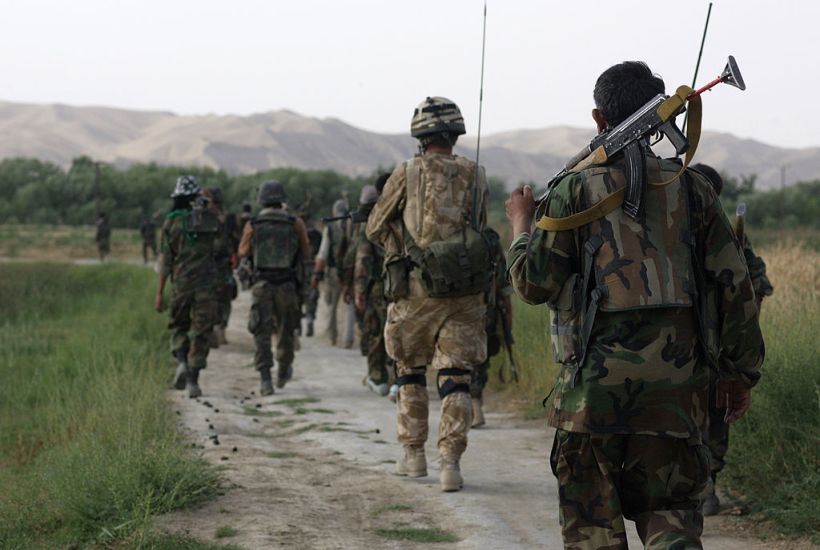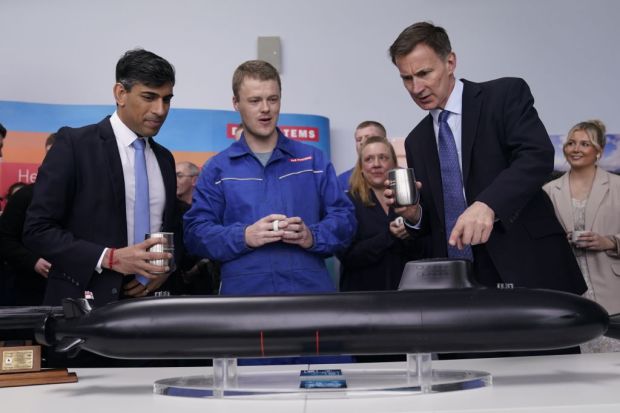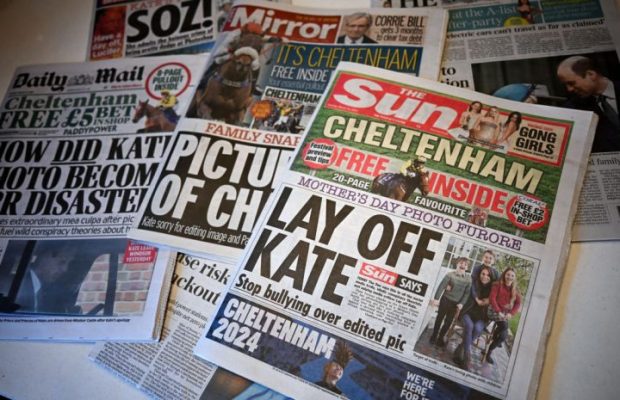As the Americans prepare to leave Afghanistan, and in the UK we hold our own Defence Review, should we not be asking: have we really learned from the lessons of our failures there?
I was in Afghanistan for a brief and intense time in 2007 when I was filming for Channel 4 Dispatches and CNN. We saw a country that had been brutalised for decades by the Russian occupation, the ensuing civil war and then American carpet bombing to ensure US troops met no resistance. A country which was becoming restive as the allies seemed increasingly unable to help them rebuild, or for that matter interested in doing so once they had been distracted by Iraq.
It was a pivotable moment. In the first five years after the 2001 invasion, only a handful of British troops had died in Afghanistan. This had bred complacency.
Tony Blair had then made a momentous decision not long before we started filming. To demonstrate British military efficiency and willingness, he volunteered British forces to take over in the rural south of Afghanistan, near the porous border with Pakistan where the Taliban had retreated. So in 2006, over 5,000 British troops were sent to the province of Helmand.
Blair’s defence secretary, John Reid, made the blithe assertion that he hoped the troops would leave ‘in three years time without firing one shot’. He was wrong on both counts: it was to be another eight years before British combat troops left Afghanistan; and they were to suffer many casualties. Over 450 British personnel were to die in the conflict, and far more suffered life-changing injuries.
Tony Blair’s decision came at just the wrong time. The mood in Afghanistan was palpably changing. The American military had made no attempt to ‘nation-build’ after their remarkably quick and successful invasion. Donald Rumsfeld at the Pentagon had explicitly opposed it, hoping that the ragtag collection of Northern Alliance leaders presided over by Hamid Karzai would do the job for them – despite the fact that most were warlords and had singularly failed to do so during the earlier civil war.
The Afghan population, who at first had largely welcomed the ousting of the unpopular Taliban, had begun to realise that while money was swilling into the country to aid agencies, not much was getting through to them – and that the allies simply did not understand that the complicated tribal system of councils, the jirgas and shuras, could not easily be bypassed by parachuting in governors. Nor did it help that after the Russians had destroyed much of the irrigation system as part of a scorched earth policy, the opium poppy was left as the easiest and most valuable crop to grow. And nowhere was more opium being grown than in Helmand, just to add to the problems facing the incoming British.
But there was another difficulty waiting for them, along with the opium. Tony Blair had made a terrible miscalculation. If he had forgotten that the British were still more hated than any other nation in Helmand, the locals certainly hadn’t. The Battle of Maiwand had taken place nearby in 1880, which had brought to an abrupt end the many British attempts to control the Afghan region in the 19th century. If there is one consistent factor in Afghan politics, it is that people bear a long grudge.
Ashraf Ghani, a former finance minister and now Afghanistan’s president, was quoted at the time of the British redeployment as saying that ‘if there is one country that should not be involved in southern Afghanistan, it is the United Kingdom.’ This was consistent with the Allies’ blundering approach in general.
The British arrived in Helmand badly under-resourced and ill prepared for what they were about to encounter. One reason they were so stretched is that at the same time as deploying to Helmand, the British Army was trying to manage an increasingly volatile situation in Basra in Iraq. Again, they had been committed by a government with a dangerous need to try and show off British military capability, even if it wasn’t there. Resources were dangerously stretched between the two missions.
Despite that, British commanders in Helmand allowed ‘mission creep’: they found themselves establishing vulnerable control posts in wild bandit towns like Sangin and Musa Qala, where the complexities of tribal conflicts bemused them. To say they were out of their depth would be to assume they were in a swimming pool when in fact they were in the middle of an ocean. Not that they helped themselves: they had few political officers or interpreters, so half the time they couldn’t work out whose face was behind the beard, Taliban or friend. The situation rapidly grew out of hand, with mounting casualties.
Rather than admitting they were overextended, the British doggedly soldiered on. Due to MoD procurement errors, there were not enough helicopters to support the increasingly far-flung control posts around Helmand – and as the Taliban gained in confidence and started using road-side bombs, not enough suitable vehicles to make the increasingly dangerous journeys by road, just as in Basra. The Land Rovers and other soft-shelled vehicles used were dubbed ‘coffins on wheels’ by the soldiers; the MoD had committed to an advanced technology program called FRES, Future Rapid Effects System, which had yet to come online, rather than going for the far lower cost, mine-resistant vehicles which were desperately needed.
Thinking about Afghanistan now, I feel an enormous sorrow for the families of the brave British soldiers killed by this rash deployment, and for those injured or traumatised; and also an anger at the blind stupidity of politicians like Tony Blair who sent them there.
I also feel empathy for those Afghan civilians I met who had been trampled by the decades of conflict: the widowed women huddled in burkas in the winter streets of Kabul, begging in the mud; the orphaned children in a remote village by the Tajik frontier, fending for themselves; at the other end of the country, a child bride on the outskirts of Herat living in a hut amongst piles of old abandoned tanks, showing us the leg she had burned with kerosene at 12 years old. There have been over 45,000 civilian deaths in Afghanistan since the invasion.
While the US contemplates leaving the country completely in May, whatever anarchy may then ensue – as it surely will – have we ourselves learned anything from Afghanistan? As Andrew Marr once pointed out in an interview, no British politician has ever apologised for mistakes made there.
What led us to overcommit and then suffer casualties was a wilful determination to assert a power we no longer had; and a concomitant failure to understand the country we were dealing with. The same dangerous attitude is displayed in the current Defence Review, which wants us still to be a global player: to increase our nuclear warhead capacity by 40 per cent; to be able to intervene, even though we will have fewer troops and resources to do so. There is much loose talk of ‘new technology’, just as there was when replacing the Land Rovers. But as Michael Mullen, a former head of the US military, pointed out when asked about the British troop cuts, it can be hard to use an app when you’re in the middle of a battlefield. What matters is the practical application of force on the ground to achieve measured objectives.
The lesson from Afghanistan is that we should not try to punch above our weight. The British Empire ended over 50 years ago. Isn’t it time we stopped trying to be one of the world’s policemen? We would do much better by being one of the world’s interpreters and facilitators instead.
Got something to add? Join the discussion and comment below.
Get 10 issues for just $10
Subscribe to The Spectator Australia today for the next 10 magazine issues, plus full online access, for just $10.



















Comments
Don't miss out
Join the conversation with other Spectator Australia readers. Subscribe to leave a comment.
SUBSCRIBEAlready a subscriber? Log in